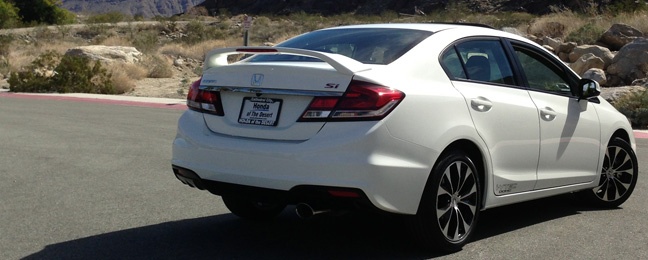

Aug 2 2012
Can the Civic drive Honda’s New Vehicle Sales in the Short and Long Term?
Though 80% of Honda vehicles sold in the U.S. are manufactured domestically, Honda’s position in the US market was shaken by last year’s catastrophic earthquake and tsunami. Not only did it cripple Japanese auto production, it resulted in shorted supply lines that US production depended on. As a result, in 2011 Honda lost significant US market share and were almost passed by Hyundai in total US vehicle sales. On a model level Honda saw their flagship model Accord fall from 4th to 9th while the Civic and CR-V fell out of the top ten US bestselling vehicles for 2011. Based on their challenges in 2011, some felt that Honda lost a little of it’s “mojo” and regaining market share might be a tall task. However, Honda has come out strong in the first half of 2012. Civic sales are up over 20% year over year through June. The Civic, Accord and CR-V are currently the 4th, 6th and 8th best sellers in the U.S. respectively. This is encouraging news for Honda. But some question if the Civic’s resurgence, so important to Honda place in the US market, is based more on fading reputation and past performance than how it currently stacks up against an increasingly strong small car segment.
The Civic has long had a great reputation for excellent fuel economy. Most US trims are equipped with a 1.8L 140hp engine that is rated for 39mpg Hwy. That kind of fuel economy used to be industry leading, but is now about “Par for the course” within its class. In addition, many of its competitors have caught up to the Civic in driving quality, performance and overall quality, where it used to excel.
While vehicle data shows overall U.S. hybrid sales were relatively sluggish last year, it is noteworthy that over the first six months of 2012 Honda only sold about one hybrid Civic to every 30 Toyota Prius sold. Sure, Honda may be splitting it’s hybrid customers between the Civic, Insight and CR-Z. But even when you combine the sales of these three Honda hybrid vehicles, their volume is less then a 10th of the Prius model lineup. The fact is that Civic Hybrid sales have been on a sharp decline since 2008, during a time when hybrid vehicles have increased in popularity and sales. At this time the Toyota Prius simply has a better fuel economy and is close to $2000 cheaper (base price) than the Civic hybrid offering.
With the Civic’s strong YTD sales, Honda may not be overly concerned with the lack of hybrid sales compared to Toyota. However, it is worth considering the effect that a lack of an industry leading hybrid offering has on a brand value that has traditionally been tied closely to exceptional fuel economy. The fact that Honda has yet to exceed the golden 50mpg threshold from its Hybrid vehicle offerings, while competitors are starting to offer vehicles (including electric and plug-in hybrid vehicles) that far exceed it, should be concerning.
So what is driving the rise of Civic sales in the U.S.? The Civic comes in a variety of non-hybrid trims with a median base price under $20,000. It has a relatively high safety rating, great brand recognition, a strong history of reliability and a sleek aerodynamic appearance. But is that enough to keep grabbing potential buyers’ interest throughout the year and subsequently push Honda’s US market share into double digits? With so many manufacturers increasing fuel economy of their gas engines, as well as offering hybrid, diesel or electric variants of popular models, many doubt the current Civic can maintain its momentum and be the key to Honda’s continued resurgence over the long haul. The fact that Honda is refreshing the design of the 2013 Civic, so early after release of a completely redesigned 2012 model, shows that they have similar concerns and are taking steps to address them. It also suggests Honda recognizes that the Civic plays the key role in Honda's ability to continue it's resurgence in the US market.
What’s your take? Is the Civic poised for a sustained recovery in sales, or does an increasingly competitive segment lead you to expect sales to drop? Do you think an early refresh of the model is the answer, or a move that seems panicked or unnecessary on Honda's part? Will the lack of an industry leading hybrid, electric or diesel offering in the Civic lineup hurt it and Honda's brand value in the long run?
Let us know your thoughts in the comments section below.
Photo Credit: Wikimedia